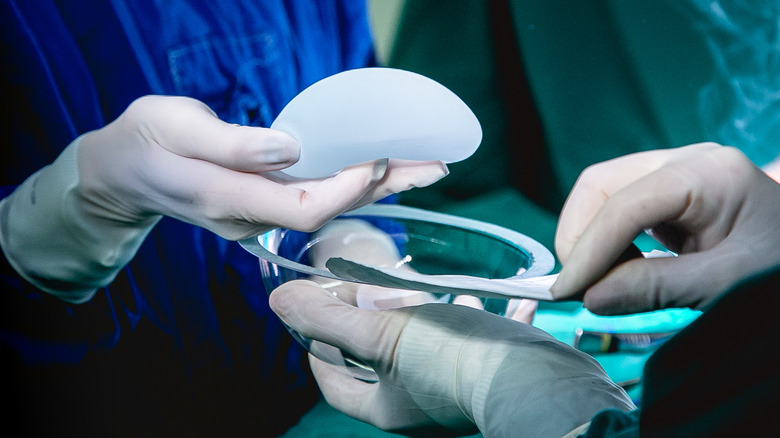Why The FDA Is Requiring More Stringent Warnings For Breast Implants
The U.S. Food and Drug Administration (FDA) announced on Wednesday that it has implemented stronger warnings for breast implants. In a statement, the organization announced several requirements to better inform those considering breast augmentation of the risks.
One of the more prominent changes includes a boxed warning. Since patients rarely see the box, doctors are now being expected to discuss risks, as well as alternatives, according to NBC News. Other regulations include a checklist, which the patient and physician must sign, that states the doctor has discussed the risks involved with implants prior to surgery. Patients will also receive a device card, as well as a list of the materials used in implants. Updated screenings are recommended to check for ruptures, and patients are encouraged to report any negative side effects through the FDA's safety information reporting system, Medwatch. In addition, manufacturers are expected to update information on their websites to reflect the changes, per the FDA.
Some implants cause serious side effects
The FDA's requirements come after an NBC investigation in 2019 revealed that a kind of lymphoma was connected to textured implants, and the link was more prevalent than doctors believed (via NBC News). The investigation triggered the development of an advisory committee. Members heard testimony from women who said that their doctors did not inform them about all of the dangers involved with implants.
Lymphoma is not the only issue associated with breast implants. Breast implant illness can occur with any kind of implant, and symptoms include chronic fatigue, joint pain, breathing problems, rashes, anxiety, depression, and headaches (via BreastCancer.org).
The older implants are, the more likely they are to cause problems (per CNN). The new regulations will help educate patients, and that is a "big step," according to Dr. Binita Ashar, director of the Office of Surgical and Infection Control Devices at the FDA's Center for Devices and Radiological Health (via NBC News).


